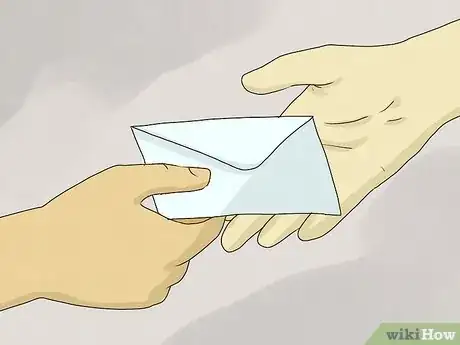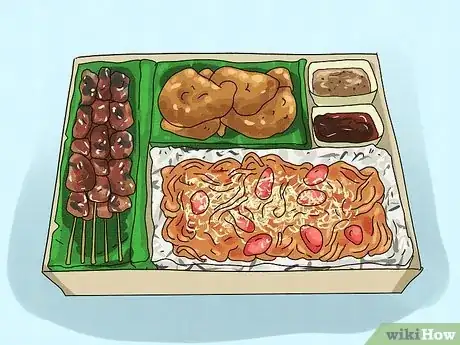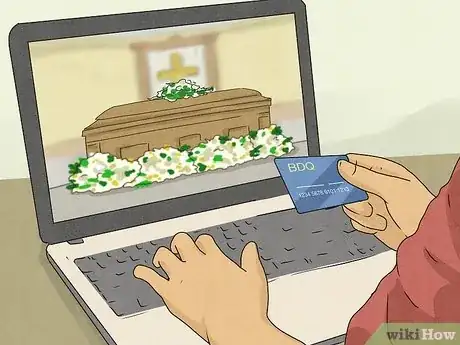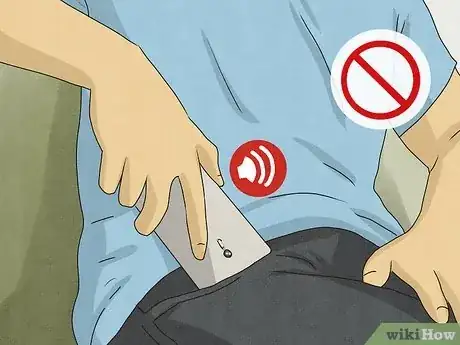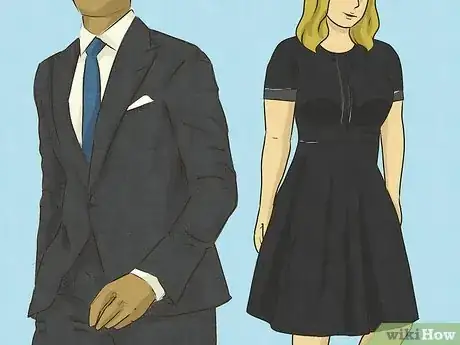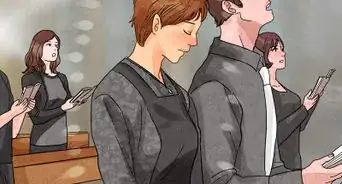This article was co-authored by Jeanne Walker and by wikiHow staff writer, Luke Smith, MFA. Jeanne Walker is a Florist and the Owner of Fringe Flower Company, a floral design shop that specializes in weddings, special events, and daily deliveries. Fringe Flower Company, based in Walnut Creek, California, provides customized hand-tied and vase bouquets along with potted plants, succulent gardens, tulip french buckets, and wreaths. Jeanne also conducts floral design workshops and parties throughout the San Francisco Bay Area.
There are 11 references cited in this article, which can be found at the bottom of the page.
This article has been viewed 4,291 times.
Funerals are emotional and oftentimes solemn events, and the last thing you want to do is somehow disrespect the deceased or their family. You want to offer your condolences, but you also don’t want to offend anyone somehow. We’ve prepared a handy list of appreciated funeral gifts, practical items to bring, what to leave at home, and what to wear, to make sure you can honor the deceased in a respectful and thoughtful way.
Things You Should Know
- Bring gifts like flowers, sympathy cards, and monetary donations in the form of a check to most funerals.
- Bring tissues, umbrellas, and sunglasses for your own use during the funeral.
- Avoid bringing loud electronics or fussy children.
Steps
Appropriate Gifts for Funerals
-
1Flowers. Flowers are typical decorations for a funeral, and also make safe gifts for the bereaved when ordered a few days ahead of time through the funeral director. Lilies and roses are the traditional choices, but if you know that the deceased or the deceased’s family preferred a certain other type of flower, ordering that type can be a thoughtful and appreciated gift.
- Flowers are typically not included in Jewish funeral services, so skip them if the deceased or the deceased’s family is Jewish.[3]
-
2Sympathy cards. A card is a classic way to offer your respects and to give a lasting, physical reminder that you’re sorry for someone’s loss. Include a handwritten message of condolences that offers comfort, a kind memory, and if you’re able, offer to help the bereaved family with things like groceries or errands.[4]
- Avoid offering advice in your card. The family of the deceased may not be looking for ways to cope with their grief, or your advice here may be too personal or unwelcome.
- You may have the opportunity to speak with the family of the deceased or other mourners who knew them, and in this case it can be a profound and thoughtful gesture to share a positive memory you have of their lost family member or friend.[5]
-
3Donations. Funerals are expensive events that may be a financial burden on the family of the deceased. If it’s indicated in the invitation or service pamphlet that a monetary donation is appreciated (It may say something like “In lieu of flowers…), include a check in your sympathy card for the equivalent cost of a bouquet of flowers, about $40-$80.[6]
- Some families may request online donations or donations in a particular form. Check with the funeral director to find if this is the case.
- If you can’t afford the cost of flowers, give what you can. The family will appreciate whatever amount you can spare.
-
4Family photos or other keepsakes. Some funerals have things like “memory tables” where guests can leave treasured items or photos of the deceased for their family to collect. If the funeral program indicates it, bring along a nice photo of the deceased, or an item that brings them to mind.[7]
-
5A meal for the family. The family of the deceased has a lot to plan and think about, and it can be hard to cook meals while grieving. Ask the family if there are any dietary or allergy concerns, and cook something easy to transport and store in a disposable dish to bring to the reception, like a casserole or other one-pan dinner to bring to the reception, or drop off in the week following the funeral.[8]
When should you give a funeral gift?
-
1Order cards and flowers through the funeral director, or send them by mail. Many families request that any gifts of flowers be either placed through or approved by the funeral director, so as to maintain the proper decor and atmosphere, and to save the family from further work. Talk to the funeral director and place your flower order at least 2 days ahead of time to see if flowers are an appropriate gift, and to place an order.[9] You can also send these through the mail to the family’s home address.
-
2Write a check for a funeral collection at the service, or make donations online. There is sometimes a donation collection at the end of the funeral service, in which case you should make out a check to the family or the party specified on the invite and place it in the basket or donation box. A family may also make donations available online, in which case you should contribute before the funeral.[10]
Practical Items for Funerals
-
1Tissues. Of course, people will be crying at a funeral. Even if you don’t think you’ll be crying yourself, offering a tissue to another mourner who is crying can be a thoughtful gesture. Your emotions might take you by surprise, anyway, and it’s good to be prepared.[11]
-
2Umbrellas. If the funeral includes an outdoor portion like a burial, take along an umbrella to protect you from rain or even harsh sun. This keeps your attention on the service and ensures you can stay for the full ceremony, no matter the weather.[12]
-
3Sunglasses. Sunglasses are useful not only for outdoor events on sunny days, but they can also conceal wet or red eyes if you’ve been crying.[13] Wear black sunglasses that aren’t too flashy, or another subdued style.
What Not to Bring to a Funeral
-
1Loud electronics. Put your phone on silent and leave it in the car if you can, and avoid bringing loud children’s toys. These can be disruptive, and the family of the deceased may not appreciate the distraction.[14] Checking your phone during a funeral service is bad etiquette, anyway.
-
2Young children or infants. If your child or infant is easily distracted or particularly noisy and may not act appropriately during a funeral service, it’s probably best to hire a babysitter or leave them at home. Noisy kids can disrupt a service, when everyone’s attention should be on the deceased.[15]
- Funerals can be an important part of the grieving process, however, even for children. If your child was close to the deceased, ask their family if bringing your child would be welcome or appropriate.
-
3Expensive gifts. Funeral gifts aren’t a competition, and now isn’t the time to show off. In addition, overly expensive gifts may make the family uncomfortable or feel beholden while they’re already under stress. Aim for a gift that costs about $20-$100, or consult the registry if one exists.[16]
References
- ↑ https://www.funeralguide.co.uk/help-resources/arranging-a-funeral/funeral-guides/what-to-take-to-a-funeral
- ↑ https://www.funeralguide.co.uk/help-resources/arranging-a-funeral/funeral-guides/what-to-take-to-a-funeral
- ↑ https://www.shiva.com/learning-center/what-to-bring-or-send/flowers-and-jewish-mourning/
- ↑ https://www.funeralpartners.co.uk/help-advice/arranging-a-funeral/what-to-write-in-a-sympathy-card
- ↑ https://www.funeralbasics.org/funeral-etiquette/
- ↑ https://www.funeralhelpcenter.com/the-dos-and-donts-of-funeral-donations-and-memorial-gifts/
- ↑ https://www.funeralbasics.org/how-to-personalize-a-funeral/
- ↑ https://www.funeralbasics.org/funeral-etiquette/
- ↑ https://www.funeralguide.co.uk/help-resources/arranging-a-funeral/funeral-guides/a-guide-to-funeral-flower-etiquette
- ↑ https://www.funeralguide.co.uk/help-resources/arranging-a-funeral/funeral-guides/a-guide-to-funeral-etiquette
- ↑ https://beyond.life/help-centre/arranging-a-funeral/what-to-take-to-a-funeral-service/
- ↑ https://www.funeralguide.co.uk/help-resources/arranging-a-funeral/funeral-guides/what-to-take-to-a-funeral
- ↑ https://www.funeralguide.co.uk/help-resources/arranging-a-funeral/funeral-guides/what-to-take-to-a-funeral
- ↑ https://www.funeralbasics.org/funeral-etiquette/
- ↑ https://childmind.org/article/should-children-attend-funerals/
- ↑ https://www.joincake.com/blog/what-to-bring-to-funeral/
- ↑ https://www.funeralguide.co.uk/help-resources/arranging-a-funeral/funeral-guides/a-guide-to-funeral-etiquette
- ↑ https://www.funeralguide.co.uk/help-resources/arranging-a-funeral/funeral-guides/a-guide-to-funeral-etiquette



